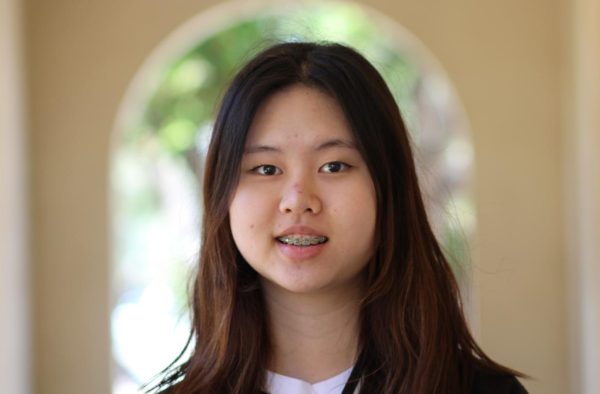It is the middle of the night, a common time for students to move onto their English homework, having finished assignments for a different class. A quick glance at the clock on the wall above the desk will tell them that it is just minutes past 2 a.m..
At this point the desire to surrender to the plush mattress of their beds instead of finishing the reading due later that same day might take over. Between sports, taking care of siblings, math tutoring and other homework, a lot of students say they have been stretched far too thin and instead of reading a couple dozen pages of “To Kill A Mockingbird,” they say it’s much easier to open a new browser to their lifesaver — SparkNotes.
It is no secret that many students routinely use SparkNotes rather than reading the assigned book from their English class.
Whether it is because they are short on time, find it difficult to read through the text, or have no interest in the book, SparkNotes can be the more efficient, but not necessarily the best, way to go.
In fact, senior Athya Paramesh, who is taking Escape Literature in the Social Justice Pathway, said SparkNotes is a resource that has become less helpful over the course of SJP English classes.
“SJP hasn’t used a lot of classical texts like Shakespeare, so the language of our readings is usually more digestible,” Paramesh said. “However, our teacher is really thoughtful in helping us know what to look for when we’re annotating and taking notes. We’ve developed skills so that we can skim and get a general idea and then go in and get a deeper look at the text itself.”
SparkNotes also only provides the most basic perspective on texts, which is unhelpful for detailed assignments and deep class discussions, Paramesh said.
“I don’t think SparkNotes is inherently harmful, but rather the overuse of resources like it is harmful,” she said. “It’s a great way for students who haven’t looked at classical texts to get a grasp of what is going on before fully diving into the complexities. Then they can come back around and look deeper for details and see if the translation is really correct.”
Sophomore Marcello Attardi said his teachers aren’t strict about the use of SparkNotes, and there has not been much discussion of the use of online resources for assignments.
“Teachers have a system in place for making sure that students can’t only use SparkNotes to complete assignments,” Attardi said. “Most assignments require direct quotes, so we can’t just use SparkNotes, but I feel like it’s still in general pretty easy to just use SparkNotes. There are probably ways they could make the system better.”
AP English Language and SJP teacher Keith Tocci said those who are interested in literature are more likely to find assigned readings valuable than those who feel forced to read a text in order to maintain a good grade. The latter students, Tocci said, are more likely to turn to SparkNotes.
“It’s a skill to build an individual connection to anything you’re presented with to make it relevant to your world in some way, building that is actually a life skill,” Tocci said.
Tocci also said while SparkNotes is not a bad resource for helping someone understand a book at a basic level, it can often take away from a direct experience with the text which he said is going to be more meaningful than someone else’s digested summary of it.
“When book-length texts are assigned to be read, it’s because teachers believe that there is something valuable to be gleaned from that experience with the text,” Tocci said. “Every word matters, and you should be spending time with them making your own interpretations of them, which is a unique skill that you don’t pick up from shorthanding.”
English 10A and Comedy Literature teacher Joshua Knowles-Hinrichs said there are always people who use online resources like SparkNotes instead of engaging with the actual book, but said in his classes he tells students that SparkNotes is a resource to support work students have already done.
“It is not a replacement for the work you need to do,” Knowles-Hinrichs said.
Knowles-Hinrichs also said class activities that include discussions or mandatory participation often reveal if a student is regurgitating material from SparkNotes.
“It’s fine if you need to look back at SparkNotes to refresh your memory about what’s happening in that particular chapter we’re discussing,” Knowles-Hinrichs said. “If you’re looking at that instead of doing the reading, then you’re going to come in with a really narrow view. There are talking points that I recognize from SparkNotes. I look for people who are forming a pattern of only contributing things that you can find on SparkNotes.”
For cases where students are solely relying on SparkNotes for the bulk of their knowledge due to a lack of time, Knowles-Hinrichs says he routinely emphasizes communication is key.
“A lot of students are reluctant to reveal that they’re having trouble understanding something or that they’re falling behind, but it’s really our job to meet you where you are and help you get to where you want to be,” Knowles-Hinrichs said. “I can’t change what is going on in all the other classes, but I can make adjustments within my own.”
Tocci said that the tricky dance between time constraints, personal interests and academic requirements is always an ongoing problem for students.
While online resources like SparkNotes can be valuable aids, striking the right balance between using these resources as additional support and still engaging in class assignments seems to be a lasting challenge for both teachers and students.
“I agree that it can be a structural issue in the English curriculum, and a basic, ideal solution to it would be to provide opportunities to read in class,” Tocci said. “But it just seems like a complex problem that teachers and students need to navigate together.”




